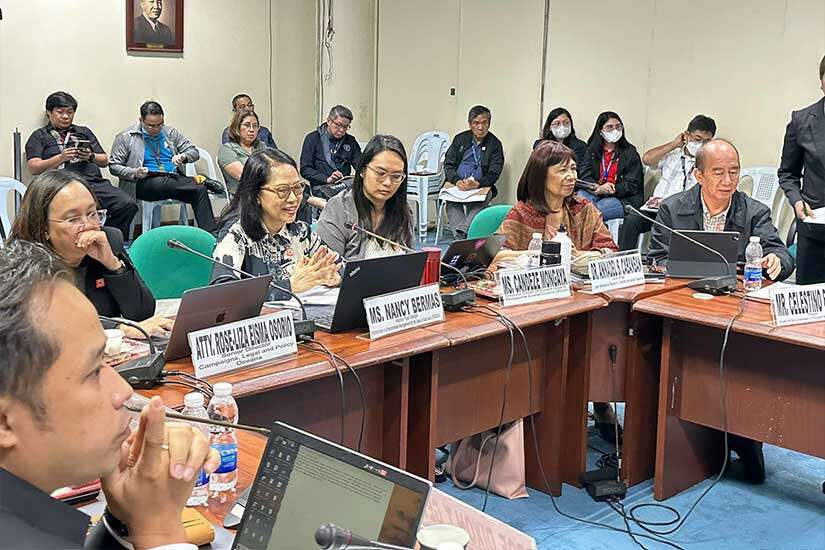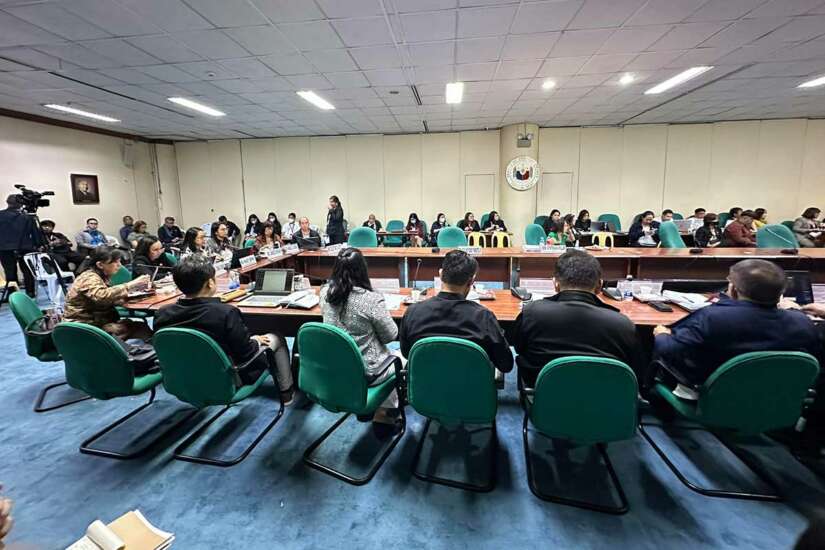As the country grapples with the worsening impacts of climate change, fast-tracking the approval of a consolidated bill for coastal management is urgently needed to protect Philippine coasts.
During a Senate hearing last week, Wetlands International Philippines, together with other conservationists and the University of the Philippines Diliman and Los Baños, unanimously supported the passage of the Integrated Coastal Management and National Greenbelt Action Plan.
“The coastal zone has many ecosystems that provide many benefits to society such as protection, food, habitats for biodiversity, livelihoods, and regulation of water and climate. Protecting these ecosystems through law is much needed to ensure sustainable development in the Philippines that is based on environmental conservation, economic development, and societal well-being,” said Dr. Annadel Cabanban, Country Manager of Wetlands International Philippines.
According to Cabanban, there can be many socio-economic activities like aquaculture, fisheries, tourism, ports and shipping, mining, and salt-making in the coastal zone.
However, if left unmanaged, these could significantly damage the coastal environment.

“These [socio-economic activities] must be regulated to ensure that the benefits from coastal ecosystems will be enjoyed by coastal communities and the society as a whole for many generations,” said Cabanban.
Integrated Coastal Management (ICM) enables agencies and local government units to regulate these activities through coordinated planning, development, and management to achieve sustainable development goals.
Enabling a coastal frontier of mangroves
Further, included in the ICM bills, the National Greenbelt Action Plan enables the establishment of a greenbelt of mangrove trees and beach forest along the coastline.
“The National Greenbelt Action Plan is crucial to protect Philippine coasts from storm surges, especially during storms and typhoons. It will safeguard communities from erosion and flooding,” said Cabanban.
She explained that when a wall of mangroves lines the archipelago’s coasts, they serve as frontiers that absorb the force from wind and waves, thereby reducing the impact of storm surges on communities.
“That’s why it’s called a greenbelt. Mangrove trees also provide habitats for crabs, fishes, and shellfishes that are sources of sustenance and bases of livelihoods for fisherfolk,” said Cabanban.
Rehabilitating and reforesting mangrove trees along the coastline and in abandoned, underdeveloped, and underproductive (AUU) fishponds are “sufficient provisions in the ICM and NGBAP to establish greenbelts.”
Warning against wrong planting practices
She warned, however, against planting mangrove trees on seagrass beds, intertidal mudflats, and reef flats because it will result in the loss of areas for harvesting edible fish, shellfish, sea urchins, and other plants and animals during low tide.
“These ecosystems and open spaces are important for shorebirds and migratory birds. Mapping and allocation of feeding and roosting of shorebirds in the coastal zone is also necessary,” said Cabanban.
“This way, conservation of the ecosystems and biodiversity has a part in the integrated coastal management,” Cabanban added.
During the hearing, Wetlands International Philippines also called for the long-term protection of greenbelts.
“Rehabilitation of AUU fishponds takes about 5 years but it takes only days to cut the trees down. For long-term protection to rising sea levels and extreme events, the provisions in law must be clear,” said Cabanban.
On 05 March 2024, the Senate Committee on Environment, Natural Resources and Climate Change held its first public hearing on Senate Bill Nos. 125, 1342, and 2397, as well as House Bill No. 7767, which all seek to adopt ICM.
Presided by Senator Cynthia Villar, the panel also discussed the bills seeking to establish a National Coastal Greenbelt Plan, particularly Senate Bill Nos. 113, 591, 1117, and 1237.

